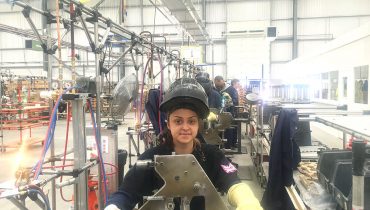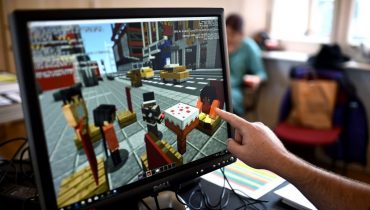 What’s the job?
What’s the job?
Theatre manager.
Who would I be working for?
There are more than 1,000 theatres in the UK for you to choose from!
What do they do?
Theatre managers can do a whole range of things, which depends on the size of the theatre. If it’s a very small place, the manager will be in charge of everything from arranging the year’s programme of shows, all the way through to making sure the staff and building stick to health and safety regulations. In a big theatre, the manager will have lots of staff and entire departments to deal with some aspects of the job.
What sort of work is involved?
- Helping to plan which shows will be on at your theatre and how everything will fit into the schedule.
- Planning and sticking to a budget. This includes making sure that all areas of the theatre are profitable, from the box office to the bars.
- Planning any building works for the year ahead. This might be maintenance of what’s already there, or building something brand-new!
- Recruiting and managing staff, and arranging training where necessary.
- Working with colleagues to help advertise the theatre and its shows to potential customers. This often includes managing the theatre’s social media channels, and thinking of new ways to help market the shows.
- Meeting with arts organisations and charities that want to contribute time or money.
- Making sure that staff and customers are safe and happy for the whole time they’re in the theatre.
- Since a lot of theatre shows have child performers, the manager needs to make sure that they’re all looked after and safe, and aren’t working more hours than they’re legally allowed to.
What skills do I need?
- Good organisation and time management.
- Maths skills are very important if you’re running a theatre’s budget.
- Excellent written and verbal communication skills, whether that’s with your staff or members of the public.
- The ability to think on your feet and come up with solutions when things go wrong at the last minute.
What qualifications do I need?
A good level of maths and English is essential, as well as experience of financial management. Some theatres might want you to have a degree in business or arts management, but people often work their way up to this role, so it could be quite normal for you to end up learning a lot of what you need on the job.
What hours would I work?
Since theatre shows are generally in the evening, you will often be working late at night and at weekends. But if you love the theatre, that probably won’t bother you!
Where would I work?
Although theatres are concentrated in cities and large towns, many are in surprisingly out-of-the-way areas, so you could be just about anywhere!
How much would I get paid?
A starting salary for someone without much experience working in a smaller venue would be around £20,000 a year. For the top people with lots of experience and who are working in a large theatre, that could go up to £50,000 or more.
Can I do work experience?
Every theatre works differently, so the best thing to do is get in touch with your local theatres and ask. Some do offer work experience placements, but some only take people on if they’re over 18. But if you want to work in the theatre, showing a passion for the arts is very important, so helping out with school or other amateur productions will help you a lot.
How might the job change in the future?
A lot of managing a theatre is about dealing with people and sorting out problems, so certain aspects of it are unlikely to change much. The way productions are put on is changing as technology improves, and this has a big impact on how theatres operate, both on the stage and for those watching from the seats. It’s an industry that keeps its employees on their toes!






























